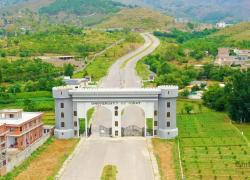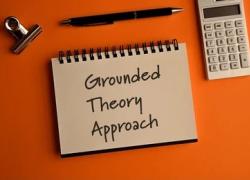What are the major challenges in writing a PhD Research Proposal and how to address them?
Almost a year and a half back, when I was collecting my Ph.D. degree and transcript from my university, I haply ran across, one of my Ph.D course-mates, who was there to work with his supervisor on his Ph.D. research proposal/synopsis. I was stunned to see him, there. He was one of the best guys among the whole lot of Ph.D. candidates and a serious research fellow. He did his MS with research work. Besides he was having his career in academics, serving as Assistant Professor in a public sector university. This time he was damn serious about his Ph.D. research proposal. He took study leave from his organization for a year to finalize his Ph.D. research proposal. After the lapse of almost a year, he was still struggling with it. One fine morning, very recently I received his message. “I quit pursuing my PhD”. He was upset, bitterly disappointed and totally at sea.
I assume this was fairly obvious but surprisingly easy for him to lose sight of his direction during this process involving inordinate delay. He was probably making things harder and cumbersome for him than necessary. More importantly, he was even jeopardizing the prospects of his entire doctoral studies. And he finally did it. This was not the sole case, unearthed in which a very potential candidate failed to complete his doctoral studies within the stipulated period of eight years, due to a variety of issues in the research proposal, I felt compelled to bring it to the limelight.
Background
An overwhelming majority of the doctoral students in this part of the world successfully complete the mandatory course-work of almost one year comprising of 18 credit hours of studies. Nevertheless, when it comes to the research work, they could not move ahead with it, owing to the numerous rudimentary bottlenecks in the preparation of research proposal and ultimately they fail to complete Ph.D. within the stipulated period of time. Since proper training, professional guidance and mentoring were rarely available to the scholars, prompting them overcome such a situation, this post is aimed at serving this purpose.
The objective
The overarching aim of this article is to share my insight with novice researchers and offer some useful guidance to the scholars to realize the sensitivity of the matter so that they may be able to take a fresh start to complete this initial step positively and proactively. Using a snowball sampling approach, my discussion with around fifteen such Ph.D. scholars of different universities revealed the underlying reasons for the problem on hand.
Underlying reasons
- Lack of basic understanding
The doctoral candidates who did their MS/MPhil with the research work used to have a fair amount of idea about the research proposal but the scholars who did their MS/MPhil with the course work have absolutely no idea how to develop a research proposal. They have nothing at the back of their mind how to begin with and how to conclude, what to include and what to avoid. This lack of basic understanding of the nitty-gritty of the research proposal has reportedly been found to be detrimental in the timely completion of the undertaking and hence the doctoral candidates could not put up a compelling research proposal well in time.
- Choosing the right area
Choosing a research area is probably the most challenging part of carrying out work on a research proposal. There are no established rules for getting hold of a good research topic. A lot depends on the scholars’ own initiative, creativity, inspiration, insightfulness and intuitiveness. There is no mechanical way of solving this perplexing mess which has already been discussed in the article, “Challenges in selecting an interesting research topic” and the article, “How to select a fascinating research topic?” provides useful guidance on the selection of an intriguing topic. The scholars, essentially, do not understand that it the basic idea that they have about the research proposal and not the whole of the dissertation. These issues are mainly caused by a variety of factors, briefly discussed in the next section.
Factors responsible
- Overcomplicated research proposal
The candidates, in general, have the tendency to include all of the noble ideas, fancy themes and grand propositions to be researched through their Ph.D. thesis. Hence, they try to start with an overcomplicated research proposal seeking to solve all the intriguing problems the mankind confronts. They look to be determined to embrace, explore and figure out every alternative option of the proposed research area. They ultimately lose focus of the actual, targeted and the simplest of the ideas to complete their research proposal within the given time.
- Over-ambitious approach
Some of the novice researchers and Ph.D. scholars seem to be too ambitious or rather tend to be perfectionist yearning their research proposal to be one of the best in the world. They want their work to be so novel and matchless that even the supervisors, the doctoral committee and the research board must fail to raise any point during the course of its review. Since they fizzle-out to develop such an ideal proposal and hence they end up with utter disappointment. I was intrigued by the same phenomenon and was too ambitious at the early stage but it did not undermine my efforts in any way as I promptly reset my direction.
- Lack of open discussion
The scholars tend to have developed the habit of not openly discussing their research ideas with the peers, supervisors and other researchers and hence they could not figure out gray areas in their research proposal. Besides, some of them have a fixed mindset with a peculiar view of the world, very hard to change. I myself remained a victim to such a hard stance despite the fact that I had no problem talking about my work with people of all age groups and resultantly, improved my work proactively with each passing day in light of the invaluable input from others.
Grappling with the issues
- Considering input from all
The scholars should fine-tune their topic based on the input from experts, research colleague or fellow students. It is advised to remain open to all sorts of suggestions, recommendations and feedback. The strategy to try and solve any problem which arises during the course of my Ph.D. by talking to someone about it, had worked amazingly useful for me.
- The beginning and not the end
The scholars must understand that their proposal is the basic idea about the research and not the whole of the dissertation. Similarly, the Ph.D. proposal, indeed, needs to demonstrate an awareness of the current work, but this doesn’t need to be anything like as exhaustive. The scholars should remember that once they begin with their Ph.D. proposal, it is going to evolve and improve gradually. They will uncover new avenues of research during their literature review, develop new insights from their own findings and have a productive ongoing dialogue with the supervisor.
- Re-setting the direction
One more thing, the scholars must understand. Their research proposal is not their entire Ph.D. But it should be a worthwhile preparation for it. Writing a high-quality Ph.D. research proposal is far from impossible. For one thing, it is an awful lot easier than completing a Ph.D. I started with a research proposal and ended up with the dissertation that was totally different from what I actually visualized during the proposal stage. The scholars should remember they cannot change the world with one dissertation but certainly add to the body of knowledge. For now, it is crucial to be selective and focused.
The next article “How to write an effective research proposal?” discuss some important points about a perfect research proposal.


















